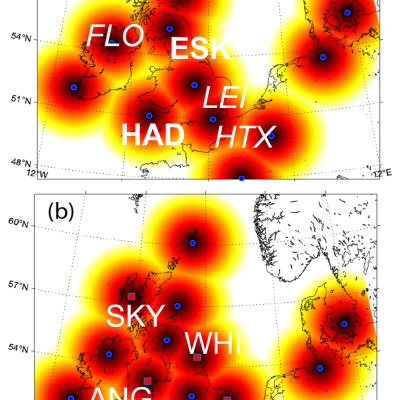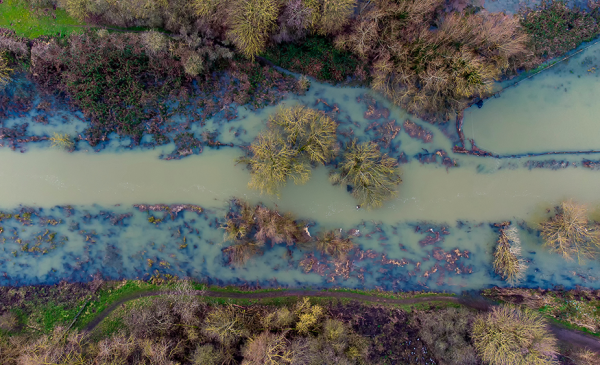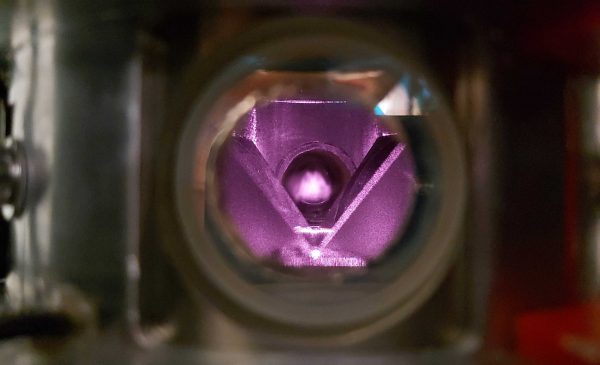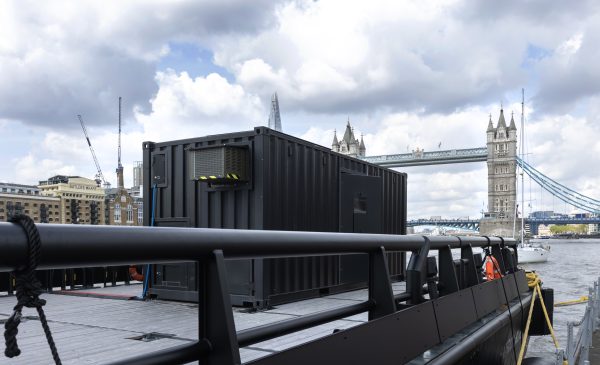Researchers at the UK Quantum Technology Hub Sensors and Timing have been awarded three projects totalling over £2.5 million from the Engineering and Physical Sciences and Natural Environment Research Councils to explore ways to build better climate models and to improve how (ground)water is detected in soils.
The first project, titled QT Gravity for the Global Geodetic Reference Frame, is led by Dr Yu-Hung Lien, Professor Kai Bongs, and Professor Michael Holynski, University of Birmingham; and Dr Victoria Smith and Dr Paul Wilkinson, British Geological Survey (BGS). This project aims to open up new applications for quantum sensing in the environmental sciences, specifically through greater knowledge and understanding of environmental effects on the reference frames used internationally to monitor our dynamic earth, allowing better models to be made and improving evidence for political decisions to be generated.
This project will directly benefit geophysics, physics, and civil engineering research. The Global Geodetic Reference Frame is essential for Earth Observation sciences in terms of providing a stable and accurate platform for monitoring the Earth system, from monitoring changes, enabling disaster management, monitoring sea-level rise and climate change to providing accurate information for decision-makers.
The QS-GAMES project brings together researchers from across the Schools of Engineering, Geography, Earth and Environmental Sciences, and Physics and Astronomy at the University of Birmingham, as well as the British Geological Survey, to investigate how quantum sensors can bring benefit to applications in the monitoring of ground water and aquifers and peatland regeneration. The project is led by Professor Nicole Metje, Director of the National Buried Infrastructure Facility, in collaboration with Professor David Hannah, Professor Stefan Krause, Dr Asaad Faramarzi, Dr Daniel Boddice, Dr Xilin Xia, Professor Kai Bongs and Professor Michael Holynski from the University of Birmingham and Dr Paul Wilkinson from the BGS). QS-GAMES will bring together internationally renowned researchers to increase the collaboration between environmental scientists, quantum physicists and engineers to explore the potential for quantum technology gravity sensors to transform the detection of (ground)water in soils.
Given the increasingly extreme weather caused by climate change, it is vital to fully understand our existing resources, such as the often ignored ‘invisible water’ underground. Despite its crucial role in droughts and floods, representing 90% of all natural disasters, water storage in river catchments (notably beneath the ground) is a major source of uncertainty in future prediction capabilities of hydrological and climate models. Meanwhile, peatlands are an important natural carbon store, and understanding the effects of complex hydrology on their health and regeneration is a topic of significant importance, with wet peatlands linking to all 17 of the United Nations Sustainable Development Goals.
The vision for the QS-GAMES project is to develop a transformative integrated framework bringing together novel sensors and practices in monitoring water in the ground (aquifer, leaks) to improve our understanding of seasonally varying complex and hidden water storage. To fulfil this ambition, the project will use world-leading expertise in quantum technology sensing, hydrology, groundwater management, geophysical surveying, Artificial Intelligence and machine learning and geotechnical engineering, and will engage widely with end users, local authorities, industry and academia across quantum technology and environmental sciences.
Measuring changes of the geomagnetic field during a storm is of critical national importance in terms of better understanding hazards posed from space weather. While present day scientific-level instruments that measure the magnetic field at UK geomagnetic observatories are very sensitive, they have not been developed to make rapid, high-accuracy and noise-free measurements of the magnetic field. As part of a new project titled Quantum Sensing of the Geomagnetic Space Weather Environment, Dr Ciaran Beggan from the British Geological Survey is working alongside Hub researchers at the University of Strathclyde – Prof Erling Riis, Dr Paul Griffin, and Dr Dominic Hunter, as well as Dr Mark Bason (RAL Space), to develop an optically pumped magnetometer to detect small changes of the Earth’s magnetic field. This new magnetometer will have reduced size, weight and power requirements with increased accuracy 100-fold compared to current instrumentation. This project will equip the UK’s real-time geomagnetic monitoring network with five new quantum magnetometer sites, complementing existing capability and increasing our in-depth understanding of space weather. This new project has the potential to bring technical, scientific, social and economic benefit in the form of a new high accuracy magnetometer than the can be deployed across the UK – and the rest of the world – in order to study the effects of hazardous space weather.

“Sensing technologies are key to our understanding of the environment and issues extending from adaptation to climate change to space weather. This innovative cross-Council call highlights NERC’s interest in exploring the exciting potential of quantum devices to transform our understanding of the natural environment. We are delighted to have awarded grants to the internationally leading UK Quantum Technology Sensors and Timing Hub, and we look forward to the next generation sensing technologies they will develop with the environmental science community.”Dr Anna Angus-Smyth, Associate Director for Digital Environment, Infrastructure and Data, NERC
“We are delighted to have been awarded funding for these three projects, which mark the start of important research linking the potential of quantum sensor technology to help build knowledge around environmental sciences.”Dr Simon Bennett, Director of the UK Quantum Technology Hub Sensors and Timing




